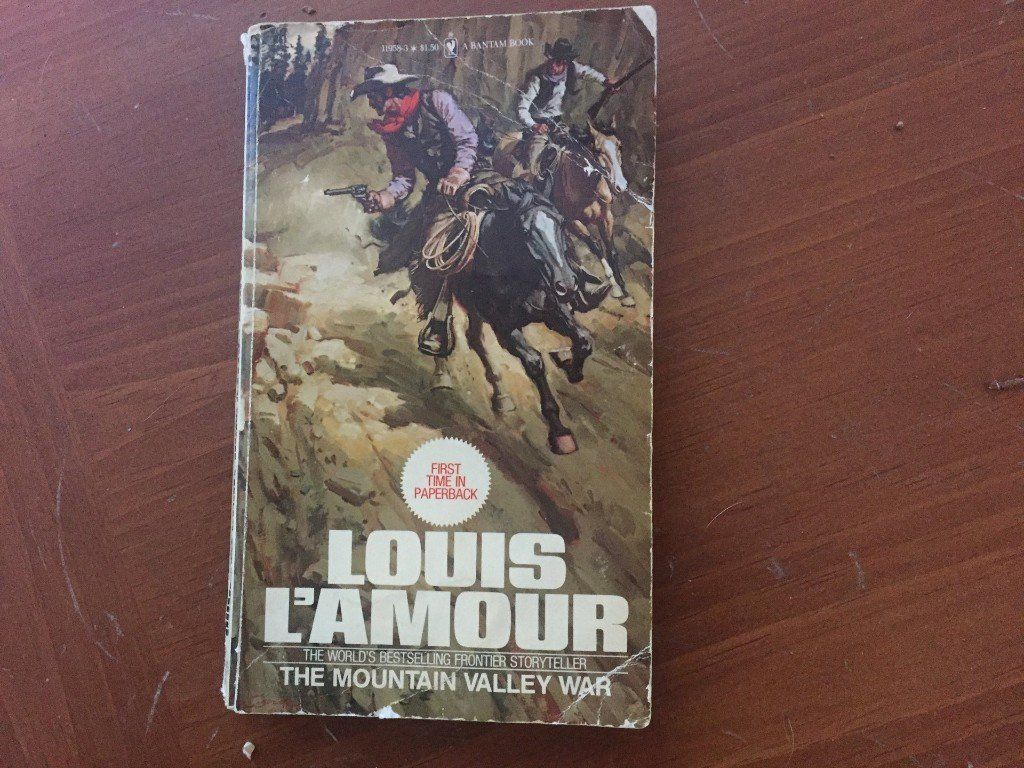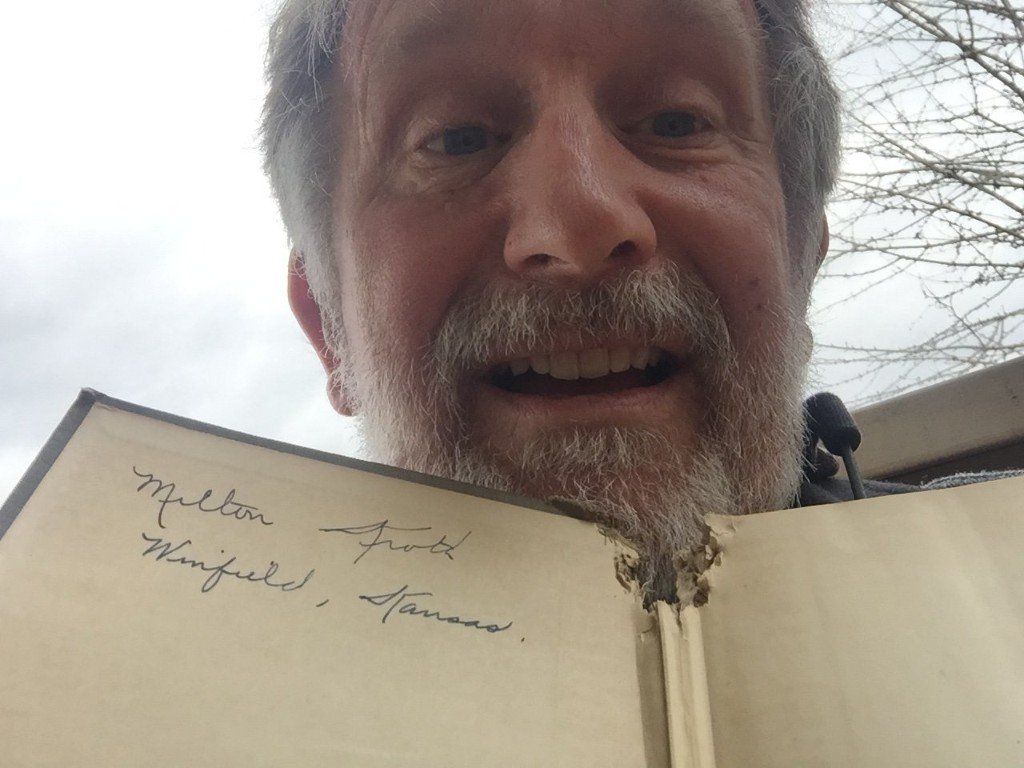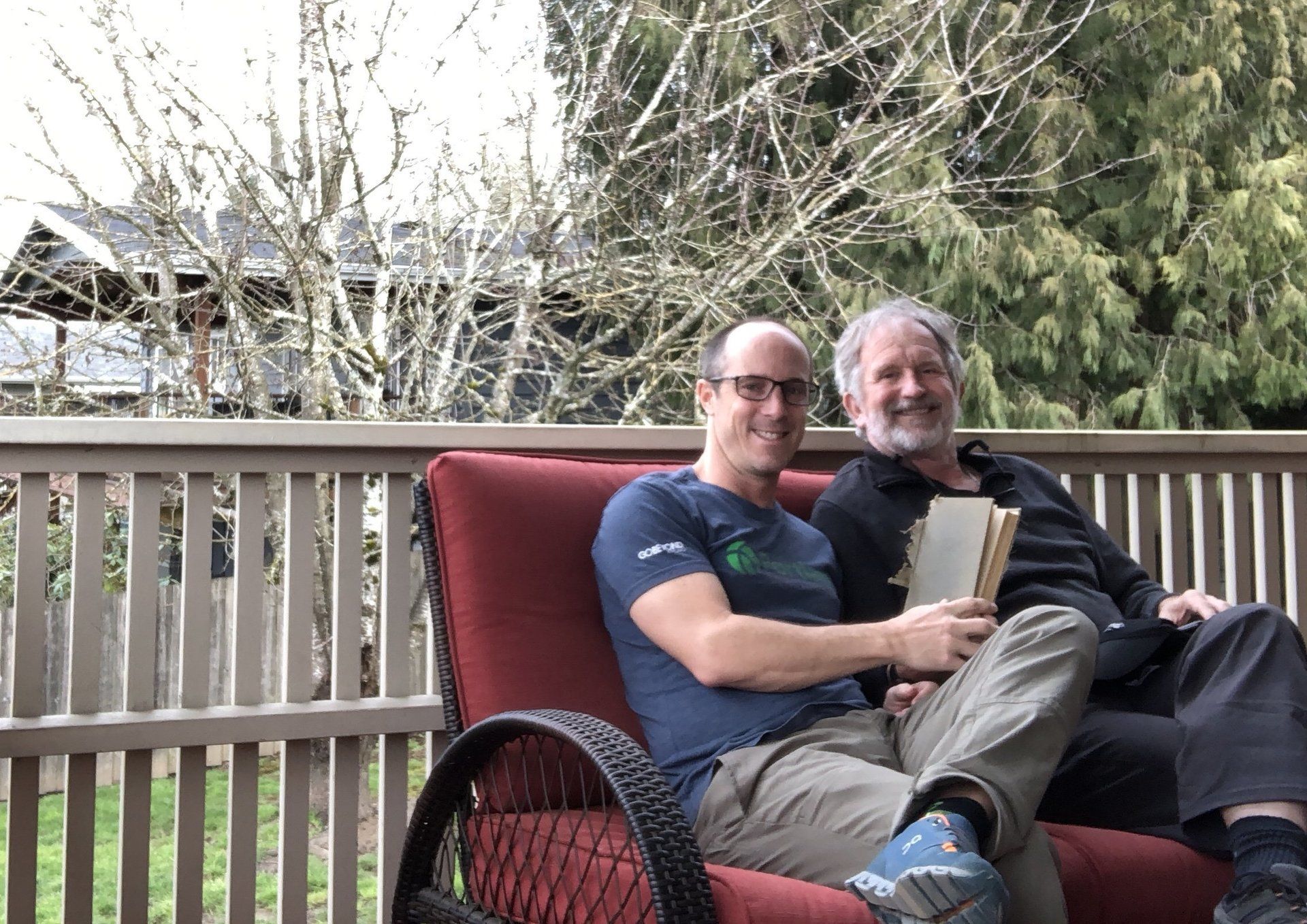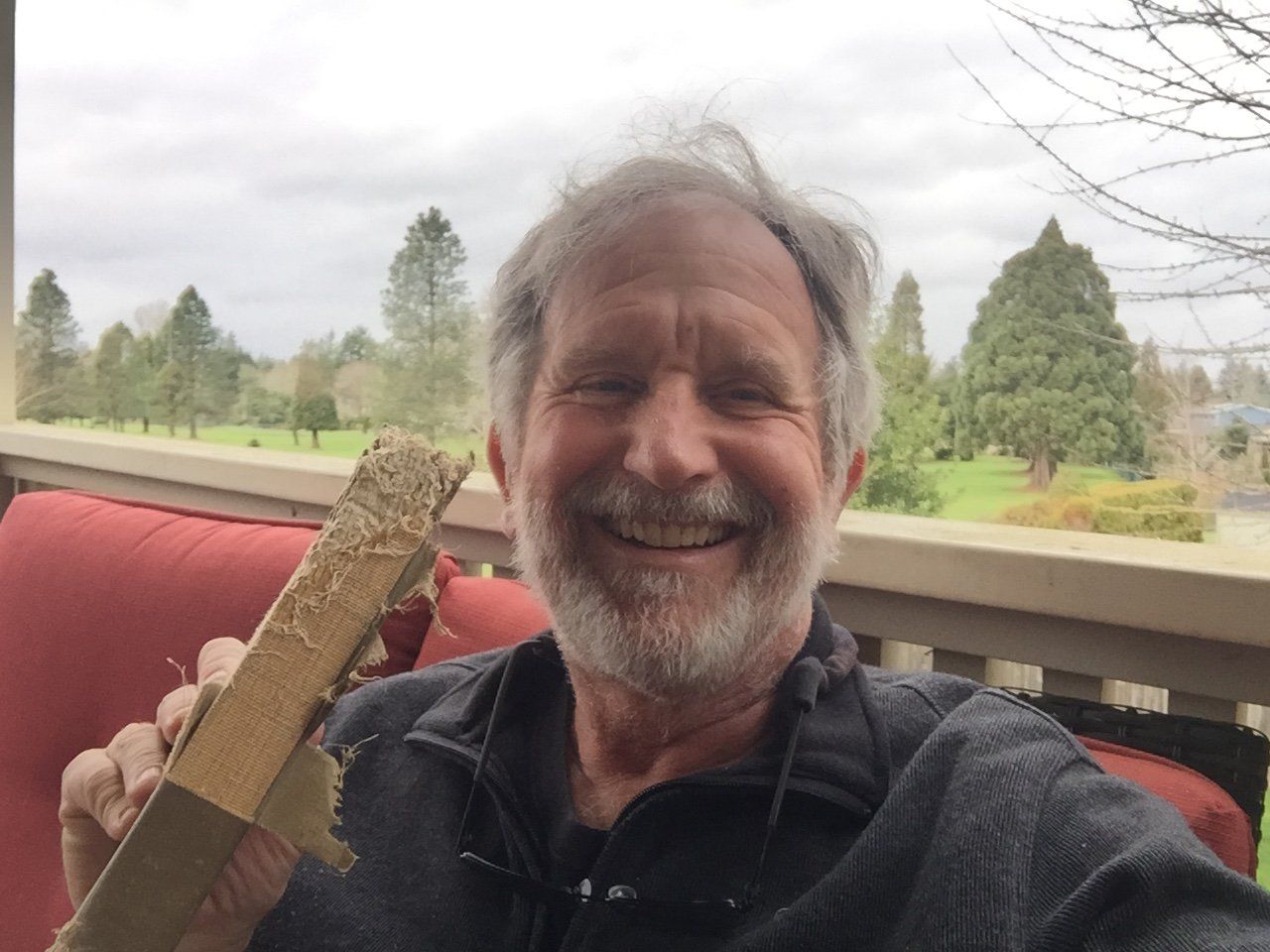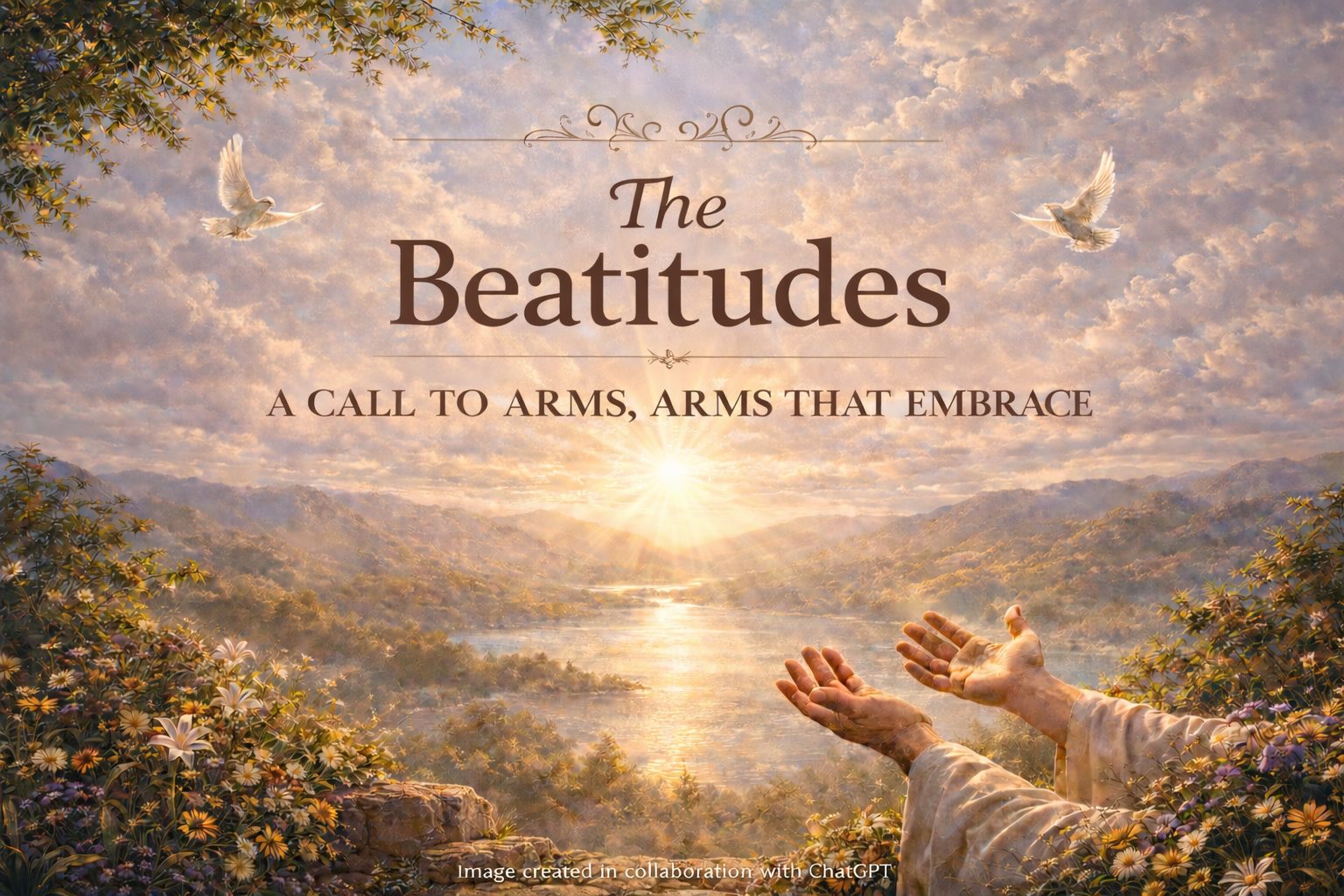My Intimate Relationship With Books V
Sharing Books Intergenerationally
“‘Been a long time, Cain,’ Kilkenny said.
‘Too long.’
“I hear you’ve come to town to kill me Cain.’ He spoke quietly,
but in the deadly hush the words were heard distinctly in all parts of the room.”
Louis L’Amour, The Mountain Valley War, 1978, p. 149
My dad, Roger Kroth, was a university professor, special education, and, as college professors are wont to do, he wrote for a living along with his other professorial duties. His output was not prodigious but it was definitive. For years he spoke at conferences around the country, invited at least partially because he had gained some reputation via his writing. His book, Communicating with Parents of Exceptional Children , was published in several editions and, as he grew older and less able to revise new editions he, fortuitously, picked up a second author along the way.
He was a quite irreverent person, with a witty humor in almost any situation, including joking about his heart attack and most anything else that struck his fancy. He was a story teller, in class and on the road. A student once gave him a sweatshirt that said something like “Stop me if I’ve told this story before.” His speeches were laced with jokes and stories and people would come up to him after a speech and tell him they were disappointed because they’d heard him years before and he hadn’t told the story about this or that which they’d heard once, twice, or more times before.
I am spawned from a storyteller-author.
I have just a very few used books that my grandfather owned–these are books he read, I'm guessing, new. They have dates like 1946. My grandfather was a renaissance man, a farmer who read Edna St. Vincent Millay and who took my dad one time to see Carl Sandburg when he was on one of his speaking tours. These books are one of the few tangible links I still have with Grandpa Milton.
When my folks passed we had many books in their library to deal with. Because books have been so important to my family, a few years before they died, we—the four kids—were invited by mom and dad to go through all the books in the house to pick out special ones we wanted. We carried some off at the time but also selected some for taking later. That—going through my folks' books when they were still alive—was a special experience for us all.
My mother loved Louis L'Amour books. We lived in New Mexico and L’Amour had written about the state. We all came to love those books too and followed the adventures of the Sackett family and other rousing tales of the West.
My folks had wide-ranging reading interests so there were treasures from multiple genres. After they died we went to a used bookstore and we also called an antique bookstore and found out they weren't. But they were worth something to us. We couldn't keep them all and again had to go through a selection process to see what we just had to have. The rest we gave away. That was a sad day.
One of the books I kept from my folks’ home was The Razor’s Edge , by Somerset Maugham. It is a book, made into a movie in 1946 with Tyrone Power and another in 1984 with Bill Murray, about a man, Larry Darrell, who decides to find meaning in life and not to compromise with society. He chose to live on his own terms.
Instead of settling for a life as a stockbroker after being a soldier in World War I, he heads to Paris and a bohemian life, leaving his fiancée—the woman he loves—behind. She decides she can’t wait for him forever and marries the expected—a high potential businessman.
Later, Larry goes to work in a coal mine, then spends months with Benedictine monks, works on an ocean liner, then ventures to India. Along the way he continues to develop his own spirituality. Returning to Paris, he finds the people he knows in shambles for one reason or another—the stock market, a car crash, impending death with the loss of social standing. Ultimately, Larry opts for the life of a simple working man and happiness over all soul-selling temptations of love or money or status.
I had read the book and seen the Bill Murray movie, and considered them both to be particularly important to me as I developed my own world views and considered my own life. I decided to keep this book because it was signed by my grandfather. “Milton Kroth” was written on the inside cover, a cherished signature. The date on the book, hardbound, is 1944, the year the book was published, and I don’t know if Grandpa bought it new or used.
In the 1940’s, my great grandfather died and Grandpa packed up his family and moved from a promising career as a high school principal in Dowagiac, Michigan to become a farmer, and a good one, for many years. He and my grandmother Hazel tended the Grandview Ranch just outside Winfield, Kansas, while taking care of my great grandmother who also lived on the farm as a widow.
I wondered, as I’ve thought about the book, whether Grandpa struggled when he had to decide about whether to give up a promising educational career. Did he view it a sacrifice, a compromise with what he wanted to do with his life? Again. He had gone to seminary in Boston as a young man, newly married, to become a minister until he gave that up to support the family when my dad was born.
In both cases, he decided to put the interests of his family ahead of what I imagine were his own hopes and dreams and talents. Had he read The Razor’s Edge , like so many people have over the last seventy years, to find the wisdom needed to make the difficult choice of exchanging a blackboard for a tractor?
I wondered too if he had given the book to my dad, when dad was considering whether to pack up his family, quit a job and a promising career in K-12 education in Wichita, to voluntarily enter a time of poverty while he pursued his doctorate at the University of Kansas. So many life choices we have.
I reread this old book myself, again submerging myself in the life of Larry, pondering how to make my own life more meaningful. Then, involved in a discussion about deeper issues with my son Shane, I gave the book to him. Now the book has passed through four generations of Kroth men, a bond we have together, a relationship we have that is unique to our situation, our family, and this book.
References:
Kroth, R. L. (1975). Communicating with parents of exceptional children: improving parent-teacher relationships . Denver, CO: Love Publishing.
L'Amour, L. (1978). The Mountain Valley War . New York, NY: Bantam Books.
Maugham, W. S. (1944). The razor's edge, a novel. Garden City, New York: Doubleday, Doran & Co., Inc.

